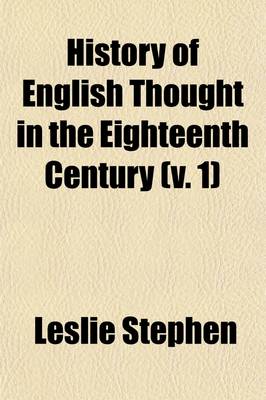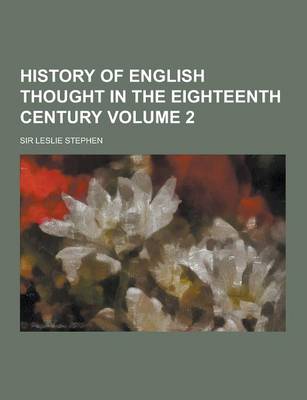History of English Thought in the Eighteenth Century 2 Volume Set
2 primary works
Volume 1
History of English Thought in the Eighteenth Century (Volume 1)
by Sir Leslie Stephen
Published 1 January 2010
Leslie Stephen (1832-1904) was a writer, philosopher and literary critic whose work was published widely in the nineteenth century. As a young man Stephen was ordained deacon, but he later became agnostic and much of his work reflects his interest in challenging popular religion. This two-volume work, first published in 1876, is no exception: it focuses on the eighteenth-century deist controversy and its effects, as well as the reactions to what Stephen saw as a revolution in thought. Comprehensive and full of detailed analysis, this is an important work in the history of ideas. Volume 1 contains a thorough discussion of the arguments for and against deism. The debate is placed in a wider philosophical context and the works of Descartes, Locke and Hume are all discussed in detail. The volume concludes with an examination of theological thought at the end of the century.
Volume 2
History of English Thought in the Eighteenth Century Volume 2
by Sir Leslie Stephen
Published 1 December 2011
Leslie Stephen (1832-1904) was a writer, philosopher and literary critic whose work was published widely in the nineteenth century. As a young man Stephen was ordained deacon, but he later became agnostic and much of his work reflects his interest in challenging popular religion. This two-volume work, first published in 1876, is no exception: it focuses on the eighteenth-century deist controversy and its effects, as well as the reactions to what Stephen saw as a revolution in thought. Comprehensive and full of detailed analysis, this is an important work in the history of ideas. Volume 2 focuses on eighteenth-century moral philosophy, political philosophy and literature, and on the literary and religious reactions to the revolution in thought. Utilitarianism is discussed at length, as well as the work of thinkers such as Shaftesbury, Mandeville, Burke and Adam Smith.

